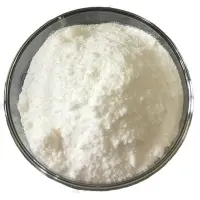-
Categories
-
Pharmaceutical Intermediates
-
Active Pharmaceutical Ingredients
-
Food Additives
- Industrial Coatings
- Agrochemicals
- Dyes and Pigments
- Surfactant
- Flavors and Fragrances
- Chemical Reagents
- Catalyst and Auxiliary
- Natural Products
- Inorganic Chemistry
-
Organic Chemistry
-
Biochemical Engineering
- Analytical Chemistry
-
Cosmetic Ingredient
- Water Treatment Chemical
-
Pharmaceutical Intermediates
Promotion
ECHEMI Mall
Wholesale
Weekly Price
Exhibition
News
-
Trade Service
!--:page title"--July 29, 2020 /pr ---Newswire/ -- Since December 8, 2019, several cases of pneumonia with an unknown cause have been reported in Wuhan, Hubei Province, China.
most of the patients work or live near the local South China Seafood Wholesale Market.
in the early stages of this pneumonia, severe symptoms of acute respiratory infections develop, and some patients develop rapidly into acute respiratory distress syndrome, ARDS, acute respiratory failure and other serious complications.
January 7, 2020, the China Center for Disease Control and Prevention (CDC) identified a new type of coronavirus from a patient's pharynx sample, initially named 2019-nCoV by the World Health Organization (WHO).
most patients with 2019-nCoV pneumonia have mild symptoms and a good prognosis.
so far, some patients have developed severe pneumonia, pulmonary edema, ARDS or multiple organ failure and death.
picture from NIAID-RML.
11 February 2020, WHO renamed the disease 2019 coronavirus disease (COVID-19).
on the same day, the Coronary Virus Research Group of the International Committee on Virus Classification and Naming viruses published an article on bioRxiv, noting that the team had decided that the new coronavirus 2019-nCoV was a variant of the 2002-2003 outbreak of Severe Acute Respiratory Syndrome (SARS)-SARS coronavirus (SARS-CoV).
, the new pathogen was renamed Severe Acute Respiratory Syndrome Coronavirus 2, or SARS-CoV-2.
note sharply, although the International Classification Board's Coronary Virus Study Group named the virus SARS-CoV-2, the team's chairman, John Ziebuhr, does not believe that the name (SARS-CoV-2) is associated with SARS (Severe Acute Respiratory Syndrome, also known as atypical pneumonia).
however, the renaming of the virus has caused a lot of controversy.
the World Health Organization is not satisfied with the name SARS-CoV-2 and does not intend to use it, science.com reported.
coronavirus can cause multi-system infections in a variety of animals.
had previously had six coronaviruses that could infect humans, mainly causing respiratory infections in humans: two highly deadly coronaviruses, severe acute respiratory syndrome (SARS-CoV) and MERS coronaviruses (MERS-CoV);
based on the serious harm caused by the outbreak in China and around the world, the small group combed through the 2019-nCoV/COVID-19 study published in the journal Science to reach readers.
1.Nature: In-depth exploration of THE antibody dependence of SARS-CoV-2 doi: 10.1038/s41586-020-2538-8 Although the importance of antibodies in the fight against pathogen infection is unquestionable, the antibody dependence of the disease (antibody-dependent enhancement, ADE, aDE, the following disease ADE) is due to the increased severity of the presence of antibodies during infection.
In the 1960s, in children who received the inactivated RSV or measles virus vaccine in Formarin, scientists have clinically described the severity of the disease through antibody dependence mechanisms, as well as dengue haemorrhagic fevercause of different dengue virus serotype secondary infections.
, for example, antibodies may allow the virus to enter cells that carry Fc-R, bypassing cells mediated by specific receptors, which are usually done after the virus degrades, but may enhance viral infection if sub-viral particles are produced.
Although cytokine release caused by viral-antibody-Fc-R interaction is also very beneficial due to direct antiviral action and immune cell recruitment, tissue damage caused by viral infection may be aggravated.
images from Nature, 2020, doi: 10.1038/s41586-020-2538-8.
While recognizing that other mechanisms of immune enhancement may also occur, in a recent review of the type of review published in the journal Nature entitled "A perspective on antibody-dependency of SARS-CoV-2", researchers from Vir Biotechnology of the United States reviewed clinical experience, in vitro analysis and animal models related to understanding the potential risks of antibody-dependence mechanisms and their effects on vaccine and antibody development, which are critical to preventing the global catastrophe of the SARS-CoV-2 pandemic.
the authors' goal is to evaluate the hypothesis that antibody mediated enhancement is caused by the following assumptions: i) low affinity antibodies bind to viral entry proteins, but have limited neutral activity or no neutral activity, ii) Antibodies with ADE are caused by infection or vaccination of a closely related pathogen serotype, called cross-reactive antibodies, or iii) are otherwise effective neutralizing antibodies in terms of efficacy is not optimal.
we assess edited experimental methods to reliably predict ADE from human diseases and concluded that this is not the case.
While ADE is a concern, it is also clear that antibodies are an essential component of protective immunity to all pathogens discussed in this article, and their protective effect depends on both the binding of their Fab fragments to viral proteins and the effects they give to the Fc fragments.
even if vaccine preparations such as Formarin's inactivated RSV or measles virus vaccine have an enhanced effect on disease, neutralizing antibodies with optimized properties have a protective effect.
in addition, the potential mechanisms of disease ADE may be viral-specific, and importantly, clinical markers do not distinguish between severe infections and immune enhancement.
more mechanism-focused research is needed to determine whether small animal and non-human primate models of viral infections, including SARS-CoV-2, can predict the potential benefits or risks of vaccine or passive antibody intervention in humans.
2.Nature: Longitudinal analysis shows that patients with severe COVID-19 suffer from immune dysfunction: 10.1038/s41586-020-2588-y In a new study, researchers from Yale University in the United States found that patients with COVID-19 experienced different immune system responses that helped predict who would experience moderate and severe disease consequences.
results may help identify high-risk patients early in the hospital.
this finding may help identify people at high risk of severe illness early in hospital and recommend the use of medication for COVID-19.
related findings were published online July 27, 2020 in the journal Nature, with the title "Longitudinal immuns revealo misin severe severe COVID-19".
the authors examined 113 patients admitted to Yale New Haven Hospital, affiliated with Yale University School of Medicine, and analyzed the different immune system responses they showed during their hospitalization, from admission to discharge or death.
they found that in the early stages of the disease, all patients' immune system activities had a common COVID-19 "signature".
However, in patients who experienced only moderate symptoms, the immune system responded less and the viral load decreased over time.
patients who continue to develop into severe cases have not decreased in terms of viral load and immune system response, and many of their immune signals are accelerating.
3.Nature: New research finds 21 existing drugs have potential to treat new crown pneumonia: 10.1038/s41586-020-2577-1 In a new study, Sanford-Sanford-1, China, China Researchers at research institutions such as the Burnham Institute for Medical Discovery and the California Institute of Biomedical Research have identified 21 existing drugs that can block replication of the new coronavirus SARS-CoV-2, which causes COVID-19 disease.
related findings published online July 24, 2020 in the journal Nature, with the title "Discovery of SARS-CoV-2 antiviral drugs through large-scale-scale compound repurposing".
the authors of the paper are Kwok-Yung Yuen of the University of Hong Kong, Sumit K. Chanda of the Sanford Burnham-Priebes Institute for Medical Discovery, and Arnab K. Chatterjee of the California Institute of Biomedical Research.
images from Nature, 2020, doi: 10.1038/s41586-020-2577-1.
the authors analyzed one of the world's largest collections of known drugs to assess which drugs can prevent SARS-CoV-2 replication.
they reported 100 molecules that were confirmed to be antiviral in laboratory tests.
of these drugs, 21 were determined to be effective at levels that were safely achieved in the patient's body.
notable, four of these compounds were found to work in conjunction with remdesivir, of which Redsivir is the current standard treatment for COVID-19.
4.Nature: Discover the most effective SARS-CoV-2 virus neutral antibodies! Doi: 10.1038/s41586-020-2571-7 Researchers at Columbia University's Irvine Medical Center isolated the most effective SARS-CoV-2 virus neutralizing antibodies to date from several PATIENTs with COVID-19.
these antibodies can be produced in large quantities by pharmaceutical companies to treat patients, especially in the early stages of infection, and to prevent infection -- especially in the elderly. "We now have a range of more effective and diverse neutral antibodies than other previously discovered antibodies, and we are ready to develop these antibodies for treatment,"
.
," said Dr. David Ho, a professor of medicine at Columbia University's Waglos School of Medicine and Surgery and scientific director of the Allen Diamond AIDS Research Center.
researchers have confirmed that their purified strong neutralizing antibodies provide significant protection against the HAMster's SARS-CoV-2 infection, and they plan to conduct further studies in other animals and humans.
study was published recently in the journal Nature.
!--/ewebeditor: !--.ewebeditor: "page title"--5. Three studies of NEJM/Nature have proved that chloroquine is untreatable in the treatment of COVID-19/SARS-CoV-2! doi: 10.1038/s41586-020-2558-4; doi: 10.1038/s41586-020-2575-3; doi: 10.1056/NEJMoa2019014COVID-19 has quickly become a pandemic and there are no antiviral drugs or vaccines available. several clinical studies are under way
to assess the efficacy of drugs that have been shown to have antiviral efficacy in vitro.
of these candidate drugs, chloroquine and hydroxychloroquine (HCQ) were highly regarded in the early stages of the outbreak, particularly by U.S. President Donald Trump, which has led to their use in thousands of people worldwide, but there is growing evidence that chloroquine and hydroxychloroquine simply do not prevent SARS-CoV-2 infection or treat COVID-19.
recently, three preclinical and clinical studies published in Nature and New England Journal of Medicine have once again proved that these two drugs are ineffective! Researchers from the University of Paris-Saclay and other units assessed the antiviral activity of HCQ in vitro and in macaques infected with SARS-CoV-2.
HCQ showed antiviral activity in African green monkey kidney cells (VeroE6), but did not show results in reconstructed epidermal models.
related research published in Nature (Hydroxyyyquine use against SARS-CoV-2 infection in non-human primates).
researchers tested different treatment strategies in macaques, including individual or combined azithromycin (AZTH) before and after the peak of viral load.
results showed that neither HCQ nor HCQ-AZTH had a significant impact on the viral load levels in any test chamber.
HCQ does not provide protection against infection when the drug is used as pre-exposure prophylaxis (PrEP).
the results of the study.







